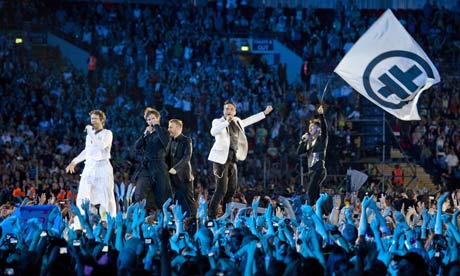
Dispatches' recent investigation into the secondary ticket market – on which I worked as an undercover reporter – exposes a sleazy brand of capitalism that is typical of our times. The Great Ticket Scandal, broadcast on Channel 4 on Thursday, reveals some of the underhand methods that have allowed the ticket reselling industry to mushroom in recent years since the advent of sites such as Viagogo and Seatwave. Do these kinds of industries represent a healthy future for de-industrialising Britain? And is it time for our government to act before the free market further steamrolls its way through the music and sports industries?
Behind-the-scenes deals with some of the world's largest music promoters, including Live Nation and SJM, have prevented thousands of face-value tickets from being available to the average fan, instead being siphoned straight off to the so-called "fan-to-fan" resale site Viagogo to be sold on at huge mark-ups.
New software has brought a legal form of touting into the 21st century, with the old-school geezer in the rain now a distant memory. This software allows "powersellers" to manage thousands of listings at a time, selling thousands (and sometimes millions) of pounds' worth of tickets for concerts and sporting events all around the world.
In his blog defending the ticket reselling industry, James Lawson argues that this is an entirely legitimate business model, suggesting that if we substitute the words "ticket" for "bread" and "tout" for "baker", we would reach similar conclusions as to how this profit is made.
However, the difference between the tout and the baker is of crucial importance: the baker uses experience and skill to combine yeast, flour, water and salt, with the right kind of oven set at the correct temperature, to create a product that is tasty and nutritious. In short, he adds value to his ingredients to create a product that will win him a profit.
The ticket tout does nothing of the sort. He creates nothing of value, merely speculating on the value of tickets (how hard is it to guess that a Take That comeback tour is going to sell out?), and bulk buying for big events with the sole aim of making a profit off die-hard fans whose frantic refreshing at 9am on Ticketmaster was not enough.
The Tory MP Sajid Javid maintains that ticket reselling is "an excellent example of the enterprise culture and of what a classic entrepreneur does". Such an argument reduces cultural and sporting events of immense national importance to mere commodities from which a few bob can be made.
However, in many cases, the "gap in the market" that a tout exploits is simply the fact that the market value of sold-out events is often higher than the price set by artists and venues. For example, a newly famous indie rock band will often cap prices to ensure that their grassroots fans are not priced out of the market, taking a pay cut only to see third parties profiteering from their idealism. This explains the furious reaction of the Rugby Football Union, who have taken Viagogo to court to force it to reveal the identities of those who sold tickets via its website; the RFU's noble efforts to distribute large quantities of tickets at a grassroots level is ingrained in the culture of the game and is being sabotaged by resale sites.
Defendants of ticket reselling often resort back to the argument of the "free market". However, as is so often the case, this free market is illusionary. The "fan-to-fan" ticket market is in fact heavily rigged by Viagogo, who receive thousands of tickets (9,000 for the forthcoming Coldplay tour alone) straight from the promoter to sell at hiked-up prices, with Viagogo and the promoter splitting the proceeds. Furthermore, Viagogo uses employees to bulk buy tickets using company credit cards and list on the site and sell at the highest mark up possible.
This is a practice shared by well-connected touts, who make up the highest percentage of sales on both Viagogo and Seatwave (at the time of the Dispatches investigation). Clearly, faced with professional resellers and backroom deals, the odds are heavily stacked against the average fan.
To halt the continued rise of ticket reselling (StubHub plans to set up in the UK this year), regulation is urgently needed. Labour MP Sharon Hodgson has been at the forefront of a laudable campaign to cap the resale of tickets at 10% of face value, a policy that looks likely to be passed in France in the near future.
With this brand of capitalism already encroaching on our higher education system, healthcare and our environment, protecting sports and the arts could prove a crucial bastion of resistance.
• Follow Comment is free on Twitter @commentisfree

